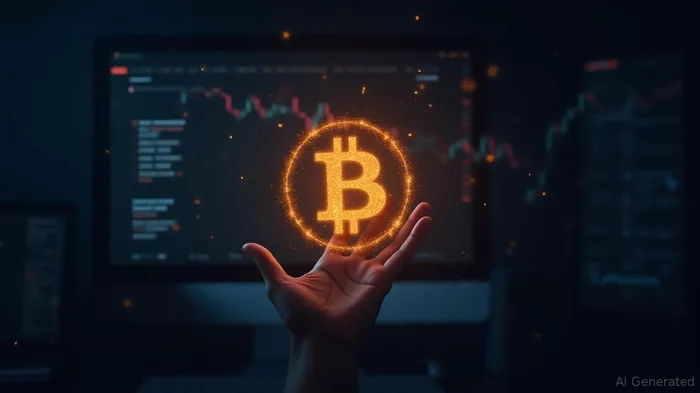Bitcoin Price Drop Sparks Paper Bitcoin Allegations
Recent price movements in the cryptocurrency market have sparked allegations regarding the presence of paper bitcoin, a concept that refers to bitcoin held by institutional investors without being backed by actual BTC tokens. This issue has gained traction as the top cryptocurrency has experienced a drop in price despite positive market actions amidst current geopolitical headwinds.
While bitcoin is programmed to have a market capitalization limit of 21 million, the involvement of institutions and custodians has raised concerns within the community. Some market participants have deemed the price action suspicious, leading to allegations of a bitcoin fractional reserve system. Stefan Jespers, known as Whalepanda, recently highlighted this issue, stating that significant inflows into ETFs and the addition of more bitcoin treasury companies have not resulted in a corresponding price increase. This has led to speculation about the prevalence of paper bitcoin in the market.
However, not all industry figures agree with this perspective. Legendary bitcoiner Adam Back has criticized the idea, calling for evidence to support the theory of paper bitcoin. This is not the first time such allegations have surfaced; similar concerns were raised in May when former Monero maintainer Riccardo Spagni criticized Strategy’s lack of transparency regarding its cryptocurrency holdings.
Coinshares, a cryptocurrency investment product firm, has also raised alarms about the lack of transparency among bitcoin treasury companies. The firm warns that if paper bitcoin proliferates without robust verification, it could undermine the trustless, auditable, and transparent nature of bitcoin. In a recent report, Coinshares noted that while the threat of paper bitcoin is real, holding institutions accountable could ensure that bitcoin remains true to its founding ethos.
The allegations suggest that some bitcoin treasury companies are issuing receipts for bitcoins that do not actually exist, creating a false sense of demand and driving up prices. This practice has raised concerns about market manipulation and the potential for significant financial losses if investors attempt to redeem their paper bitcoins for actual coins. The lack of oversight and regulation in the bitcoin market has allowed these practices to go unchecked, exacerbating the problem.
The surge in allegations has led to increased scrutiny of bitcoin treasury companies, with some accused of misleading investors by claiming to hold more bitcoins in reserve than they actually do. This has raised questions about the reliability of the information provided by these companies and the potential for fraudulent activities. Investors are calling for more stringent regulations to prevent the issuance of unbacked bitcoin receipts and to ensure that all bitcoins in circulation are backed by actual coins held in reserve.
The controversy has also highlighted the need for greater transparency and accountability in the bitcoin market. If the allegations are proven to be true, it could have significant implications for the market and for those who invest in it. It could lead to a loss of confidence in the market and a decrease in investment, potentially causing the market to collapse. Alternatively, it could lead to increased regulation and greater transparency, which could help to restore confidence and ensure the long-term viability of the market.
The situation has also raised questions about the future of the bitcoin market and the role of regulation in preventing fraudulent activities. Some argue that greater regulation is needed to ensure the integrity of the market, while others are concerned that increased regulation could stifle innovation and limit the growth of the bitcoin market. The debate is likely to continue as more information comes to light and the controversy unfolds.
In conclusion, the surge in allegations of a "paper bitcoin" conspiracy has raised serious concerns about the integrity of the bitcoin market and the potential for market manipulation. The situation has highlighted the need for greater transparency, accountability, and regulation in the market. It has also sparked a debate about the role of regulation in the bitcoin market and the potential implications for the future of the market. As the controversy unfolds, it is important for investors to remain vigilant and to take steps to protect themselves from the risks associated with paper bitcoins.

Quickly understand the history and background of various well-known coins
Latest Articles
Stay ahead of the market.
Get curated U.S. market news, insights and key dates delivered to your inbox.



Comments
No comments yet